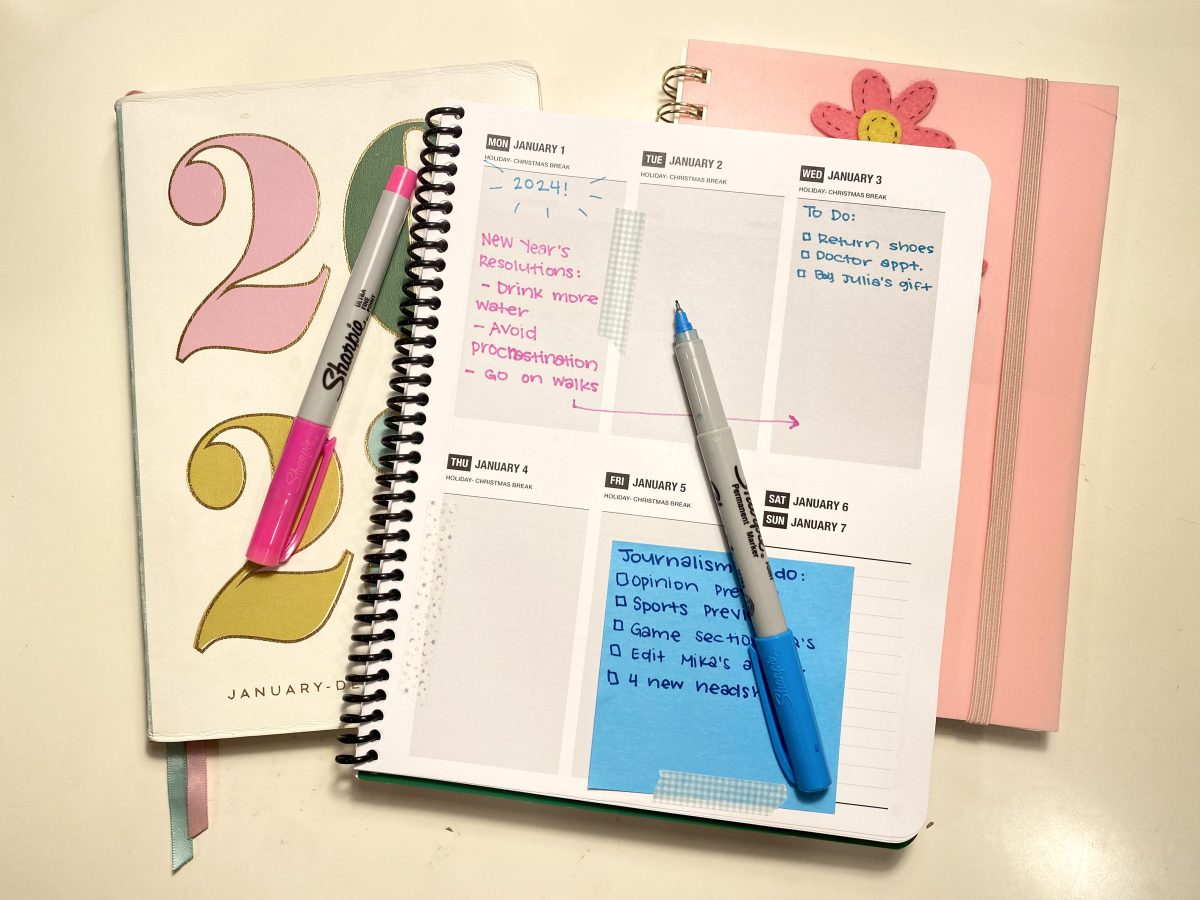It is February. Have you kept your New Year’s resolution like you swore you would on January 1? Six weeks into 2024, many have created and already forgotten about their New Year’s resolutions, and another year of wishful thinking has passed.
In vague and impractical statements, people make their New Year’s resolutions in the hopes of bettering themselves in the upcoming year. Goals like “spending less money,” “working out more” and “procrastinating less” are popular but meaningless. There are no boundaries set, no specifics, just a general hope that the person will miraculously be able to change with the turn of the year. They are unrealistic and set ridiculously high standards, ultimately having a reverse outcome and leaving a person feeling worse about themselves than they did originally.
There is also an underlying negative message behind New Year resolutions: “Something needs fixing.” Often, goals are created in response to an insecurity or an imperfection, and we see January 1 as an opportunity to change this insecurity. This is not to say that goals are a bad thing; they are not. However, the way we approach them is. There are two different types of resolutions that a person can make, and the decision between the two is crucial. The first type, a positive resolution, enforces success. The other kind, a negative resolution, centers around avoiding failure. For example, “I should eat less junk food” is a negative resolution, and instead, a more constructive approach would be to say, “I will make an effort to have vegetables with my meals at least once a day.” This second resolution is much more tangible and enforces positive behavior rather than negative.
The other issue with these vague resolutions is that they leave room for interpretation. They aren’t specific at all, and “I should save money” can mean a lot of different things. The point of a resolution is that it is difficult to keep, but the broad generalizations make it almost impossible.
Acknowledging the fact that New Year’s resolutions are mainly in the festivities is the first step to actually changing something. Taking a moment to reflect on a resolution, rather than deciding on one when the clock strikes 12:00 a.m., would heighten the chances of keeping it. Optimism alone won’t do it, and it is time that people be realistic about their resolutions. According to the National Library of Medicine, it takes around three months to build a habit, and many, like me, do not wait that long. They just give up on their ambitious resolution and go back to the way they had been before. Specific goals, reflection and maintaining accountability are the only strategies to keeping a resolution, and most just don’t.
In all my 18 years of living, I have never once kept my New Year’s resolutions. After years of trying, I gave up because I realized that we are constantly growing and just because the last digit in the year changes, does not mean that we need to change with it.










